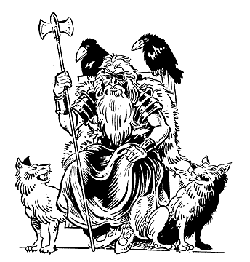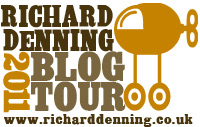Rituals and Traditions in Warfare

The preparation for warfare, the rituals surrounding it and the actual conduct of battle were central to the world view of the Anglo-Saxons. Even if a man never fought a battle or the land was at peace it was expected that men would train to be ready.
Just like today, reputation very important to men at this time. Reputation was gained by prowess in battle, by recalling the deeds of one's ancestors and kin and by the creation of and the attitude of hereditary allies and enemies
Some concepts:
All warriors must be freemen. The right to bear arms was central to the status of a freeman in the way that one aspect of slavery was that they were banned from carrying weapons.
The Anglo-Saxons believed that a warrior or leader had secret knowledge he used to protect his men. The leader kept a band of men around him - his hearth company. They would eat with him, sleep in his halls, go where he went and fight for him. They were called thanes and they had a duty to protect and serve him
Some words:
Geoguo: a youth - the young warriors
Duguo: older veterans
In battle, older veterans stood at the rear – trying to bolster the men, the youths were in the middle whilst the seasoned warriors stood at the front.
Rituals
Gifts:
Another word: Gift stool (Grefstol) - Lord sat on it to dispense gifts
The kings gave out gifts to reward his followers and maintain their loyalty. Leaders might hold special gift days. Maybe these were celebrated on days linked to his to his predecessor's triumphs to remind his followers of his inheritance.
Followers would promise duty and loyalty and leaders would give gifts: weapons, armour, rings, drinking vessels or land.
The value of an object was much more than just wealth: there would be sentimental value. The history of the object was critical i.e. who owned it before, when and for what was it used.
Ale Ritual
This was very symbolic and carried out in a defined manner.
The leader would hold feasts and provide ale and mead. The followers would drink from horns, goblets and beakers. Warriors would stand up individually and would be greeted by the leader. Then their valour and deeds would be celebrated.
The warriors would boast (Beot). This would involved committing themselves to perform a deed. This might be promising to serve their lord, never flinch in battle, slay a foe or die in attempt etc. They NEVER promised success - that was considered up to fate.
The Warrior and his king might embrace or kiss. The warrior might lay his head or hands on the lord's knee
Ritual Combat
In the case of perceived insult or loss of honour, a challenge to single combat could be refused but would lead to loss of face and public ridicule. The Anglo - Saxons had a item called a scorn pole which could be put up outside their house.
They could expect to be shamed and excluded from society.
Some Words:
Einvigi: single combat – this was a less formal duel probably just outside a hall.
Holmgangi "going to an island". One method was to go to secluded spot. Often this was a ritual site used many times in the past.Often they would peg out area of ground to fight inside using hazel sticks. These duels would continue until the death of one or their incapacity. The combatants would take alternate strokes – which they could attempt to deflect with their sword or shield.
Sword Rituals
The sword was a potent symbol to the Anglo Saxons. A promise made on a sword was taken very seriously. Swearing of oaths was often done on a bare blade. The family sword was put in hands of new born sons to show their inheritance and by so doing, the luck of the family was passed on. The marriage oath might be made in front of naked sword.
Often a mother passed on the sword to a son: ie a father would give sword to a daughter to hand on to her son
Beasts of Battle/ Gods of war
Warriors would carry the motif of a god or an associated beast on their equipment. This is particularly so in the case of Kings and leaders and is mentioned in poems.
Here are some of the gods their symbols:
Raven: Cult of Woden (also sometimes a wolf)
Boars: Freyr
Spear: Odin – Tiw. He was the god worshipped by leaders.
Hammer: Thor. He was the god of the rank and file.
|








